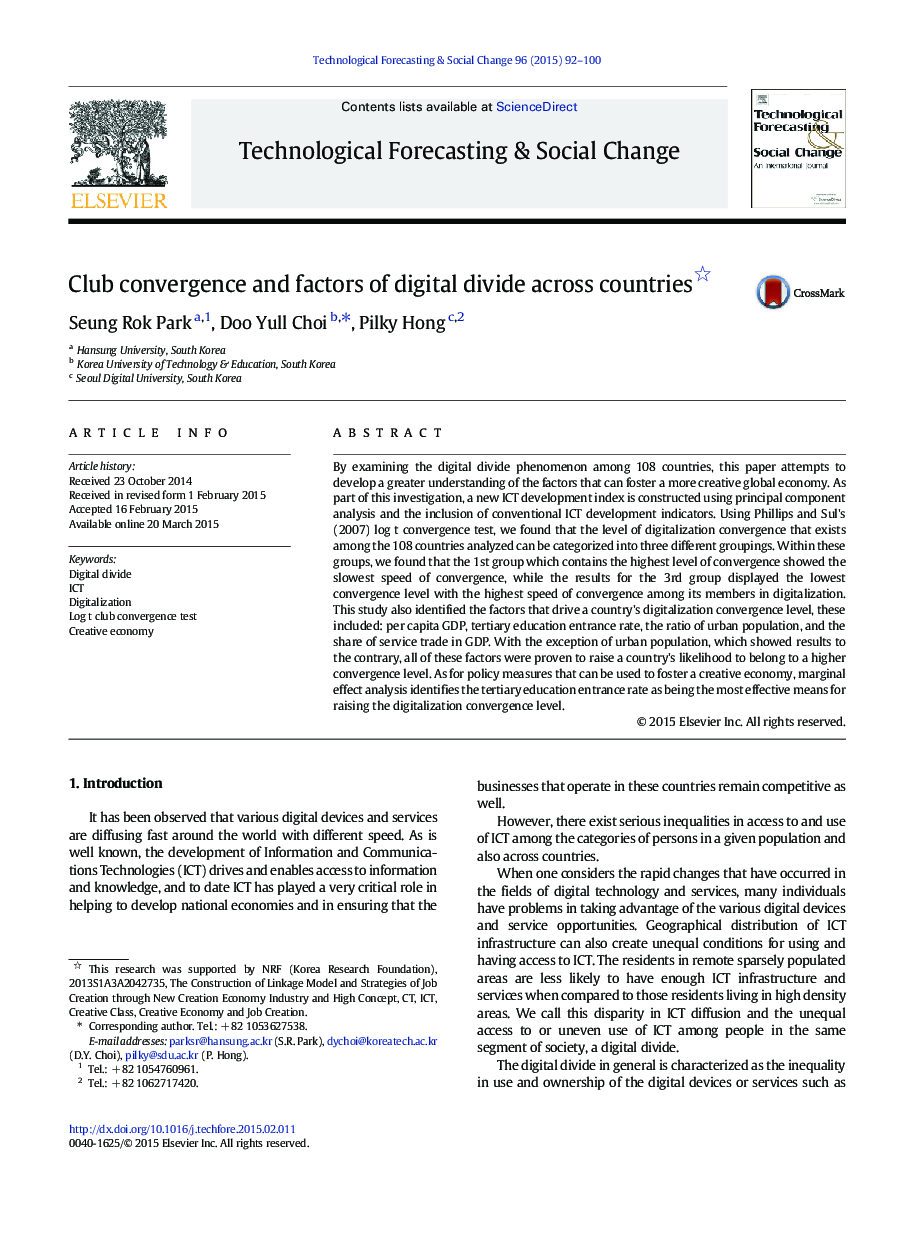| Article ID | Journal | Published Year | Pages | File Type |
|---|---|---|---|---|
| 896441 | Technological Forecasting and Social Change | 2015 | 9 Pages |
•The level of digitalization of world countries can be categorized into three groups.•The highest level of convergence group showed the slowest speed of convergence.•The lowest convergence level group showed the highest speed of convergence.•We identify several factors affecting digitalization: GDP, education, urbanization, and service.•Education is identified as the most effective means for raising the digitalization level.
By examining the digital divide phenomenon among 108 countries, this paper attempts to develop a greater understanding of the factors that can foster a more creative global economy. As part of this investigation, a new ICT development index is constructed using principal component analysis and the inclusion of conventional ICT development indicators. Using Phillips and Sul's (2007) log t convergence test, we found that the level of digitalization convergence that exists among the 108 countries analyzed can be categorized into three different groupings. Within these groups, we found that the 1st group which contains the highest level of convergence showed the slowest speed of convergence, while the results for the 3rd group displayed the lowest convergence level with the highest speed of convergence among its members in digitalization. This study also identified the factors that drive a country's digitalization convergence level, these included: per capita GDP, tertiary education entrance rate, the ratio of urban population, and the share of service trade in GDP. With the exception of urban population, which showed results to the contrary, all of these factors were proven to raise a country's likelihood to belong to a higher convergence level. As for policy measures that can be used to foster a creative economy, marginal effect analysis identifies the tertiary education entrance rate as being the most effective means for raising the digitalization convergence level.
